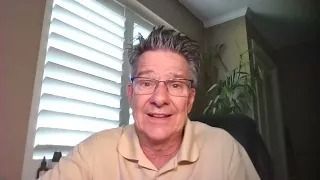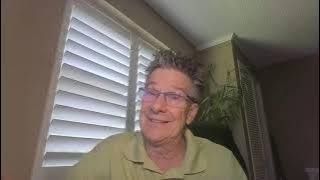Call (727) 784-5555
Buying a home with a Reverse Mortgage
You have enough cash for a $300,000 home but the your dream home is a $400,000 home. How can you do this, no monthly principle and interest payment, and have money left over for your financial advisor?
Millions of retirees and near-retirees have discovered that a Reverse Mortgage can give them the money they need to purchase a larger home without having a mortgage payment.
Tell me if this story sounds familiar.
You are nearing retirement or are retired. You want to move out of your current home to a townhome, villa, or 55 and older community. You might be relocating to a nicer climate or are trying to get closer to the grandkids.
You have cash, but your purchasing power isn't quite enough. You don't want to pull money out of your retirement accounts, because you know you'll need it, and the tax implications just don't make sense.
So,
- You don't want a loan
- You don't want a monthly payment
- You don't want to pull reserve funds
- But you want the more expensive house
Here's what you can do...
You can buy a house with a reverse mortgage!
Most people don't know that you can use a reverse mortgage to purchase a home if you have a larger down payment.
Now there are a few things you need to qualify for this type of loan according to HUD.gov.
Borrower Requirements
- At least one person must be 62 years old or above
- Own the property outright or paid-down a considerable amount
- Occupy the property as your principal residence
- Not be delinquent on any federal debt
- Have financial resources to continue to make timely payment of ongoing property charges such as property taxes, insurance and Homeowner Association fees, etc.
- Participate in a consumer information session given by a HUD- approved HECM counselor
Property Requirements
The following eligible property types must meet all FHA property standards and flood requirements:
- Single family home or 2-4 unit home with one unit occupied by the borrower
- HUD-approved condominium project
- Individual Condominium Units that meet FHA Single Unit Approved requirements
- Manufactured home that meets FHA requirements
Financial Requirements
- Income, assets, monthly living expenses, and credit history will be verified
- Timely payment of real estate taxes, hazard and flood insurance premiums will be verified
If you would like to speak to a Reverse Mortgage advisor, give us a call (727) 784-5555. Or use our form below to ask a question.
Didier Malagies nmls#212566
DDA Mortgage nmls#324329
Have A Question?
Use the form below and we will give your our expert answers!
Reverse Mortgage Ask A Question
We will get back to you as soon as possible.
Please try again later.
Start Your Loan
with DDA todayYour local Mortgage Broker
Mortgage Broker Largo See our Reviews
Looking for more details? Listen to our extended podcast!
Check out our other helpful videos to learn more about credit and residential mortgages.





